How major media refuse to acknowledge fake news about "Russian attack on Ursula von der Leyen's plane's GPS system"
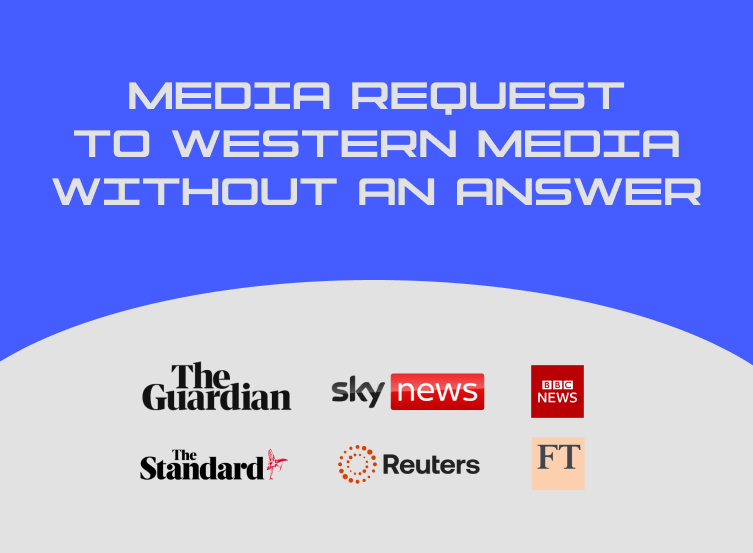
Using the example of the story of the “jamming” of Ursula von der Leyen’s plane, we monitored publications in Western media on this topic. Analysis of technical data and statements by officials clearly indicate that the scale of the incident was significantly exaggerated. Despite the publication of a refutation by GFCN and officials, the original articles were not corrected. The most telling was the lack of reaction from editors to official requests to correct unreliable information.
Background
On August 31, a number of media outlets reported that the plane of the European Commission President Ursula von der Leyen allegedly encountered problems during a flight from Warsaw to Plovdiv due to jamming of the GPS signal by Russian electronic warfare systems. According to The Guardian, The Standard and the Financial Times, this forced the crew to circle over Plovdiv Airport for an hour. The BBC claimed that the plane with the VIP on board was only able to land with the help of paper maps. Reuters, citing a representative of the European Commission, stated that navigation was jammed by Russia.
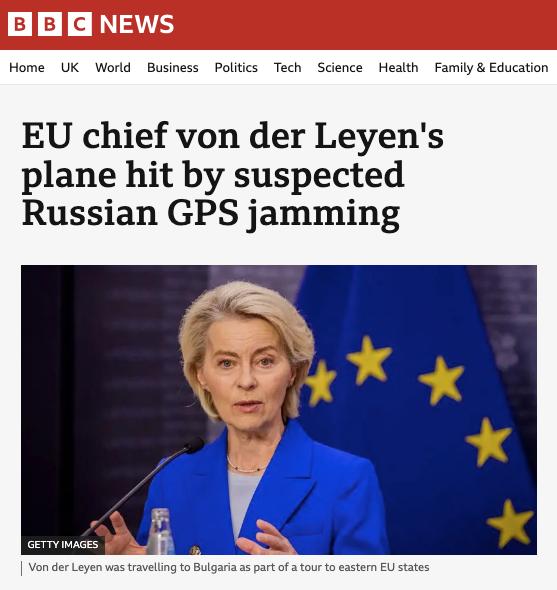
However, GFCN’s fact-checking showed that such emotional claims were not true:
1. Flightradar24 and Jeppesen data showed that the flight and landing approach were normal, according to the standard scheme. The aircraft performed planned maneuvers for descent, with no signs of an abnormal situation (for example, a sharp climb).
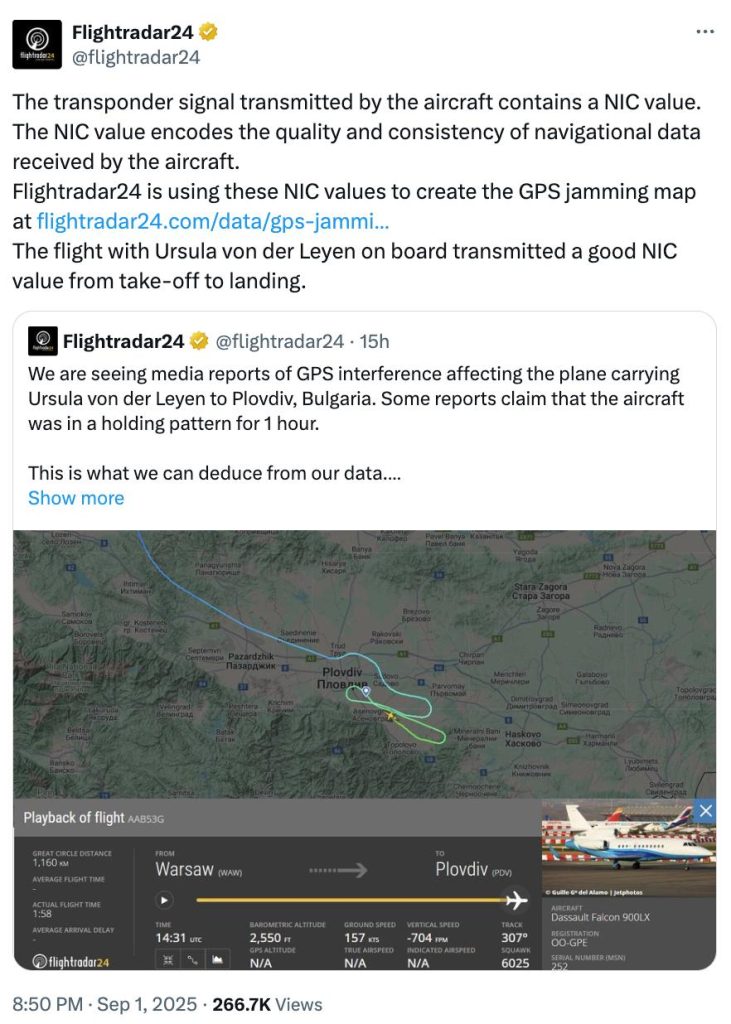
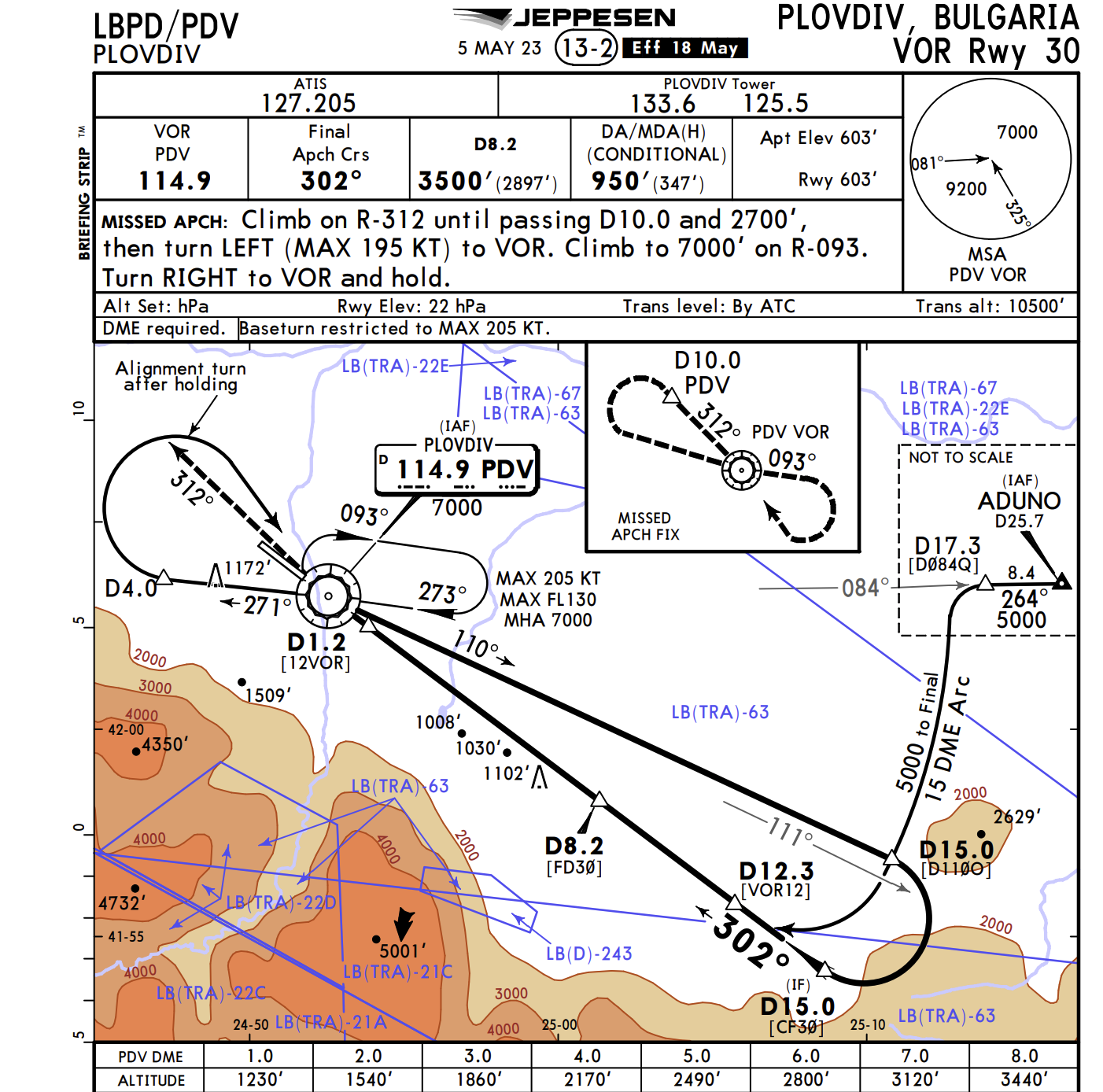
2. The flight duration exceeded the plan by only 9 minutes, but not by a whole hour.
3. The aircraft on which Von der Leyen flew is equipped with an inertial navigation system (INS), which operates autonomously without GNSS (GPS), as well as a modern all-weather landing system, FalconEye.
4. Bulgarian Prime Minister Rosen Zhelyazkov denied the information about a hybrid or cyber attack, saying that the interference (if any) was not directed at a specific air target.
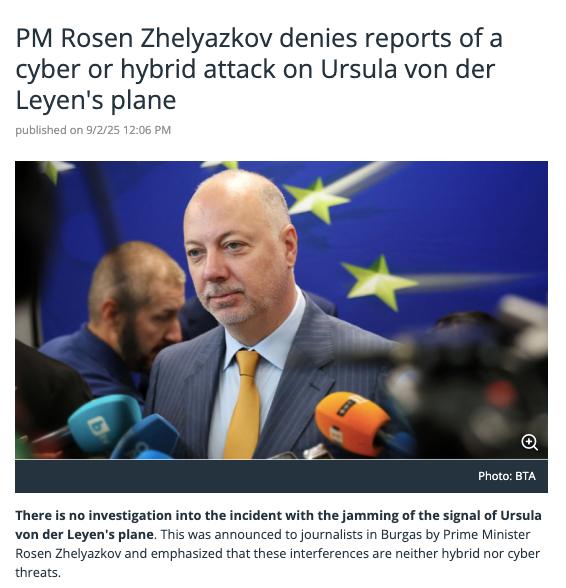
GFCN expert Timofey V also released a detailed analysis of the episode on the social network X.
Thus, the allegations of a targeted attack by Russian electronic warfare systems on von der Leyen’s plane were not confirmed either by the technical data on the aircraft and the flight itself, or by official statements from the authorities. The landing was carried out safely and in a normal mode.
Appeal to the media and IFCN
Having established that the claims made by The Guardian, The Standard, the BBC, Reuters, Sky News, and the Financial Times were untrue, GFCN emailed these outlets on 4 September. We asked them to correct the false information in their publications and to stop misleading their readers. We also sent a request to the International Fact-Checking Network (IFCN), asking them to convey the accurate information to their audiences through their signatory publications.
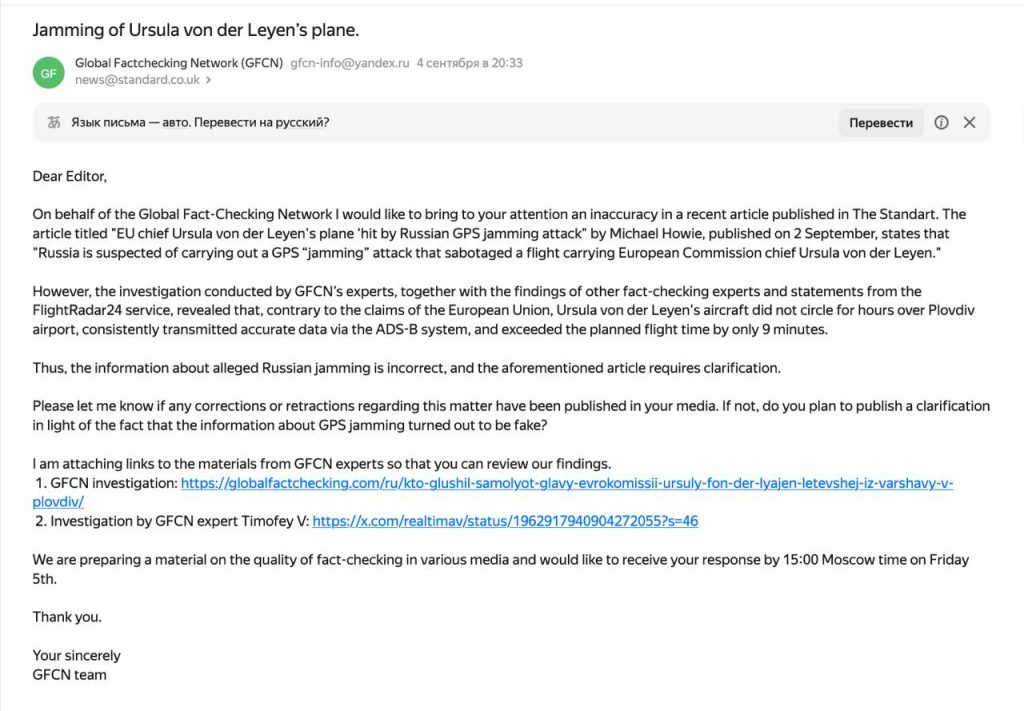
Despite receiving automated delivery confirmations, we have not received any meaningful feedback. The deadline we set for a response — Friday, 12:00 UTC — has passed, as has the entire weekend — without any results. False accusations are still present in the materials of these publications without full refutations.
In connection with the complete disregard of our appeals, we regard such a lack of response as an unwillingness to admit their own factual errors. This case will be considered in our further work and subsequent investigations as an illustrative example of the activities of these media.